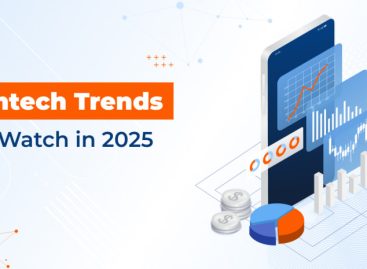- QATestLab Blog >
- QA Basics >
- Types of Software Testing >
- Blockchain Testing >
- Testing Blockchain Transactions With Cryptocurrency
Testing Blockchain Transactions With Cryptocurrency

Cryptocurrency has recently become trendy, with terms like Bitcoin and Binance being widely recognized by youth and adults. However, the crypto market includes much more than just these two. The broader landscape includes blockchain technologies and NFTs, creating an extensive and dynamic ecosystem.
According to a new report by Grand View Research, the global blockchain technology market is expected to reach USD 1,431.54 billion by 2030, growing at a CAGR of 87.7% from 2023 to 2030. As of 15 September 2024, there were more than 1 billion transactions on Blockchain.com.
With such rapid growth, keeping users’ attention and trust is highly challenging. To retain your consumers, blockchain transactions should be safe, reliable, transparent, and fast. Comprehensive testing can ensure the platform meets user expectations while maintaining the integrity and efficiency of the system.
In this article, we explain blockchain transaction testing, its critical role and offer instructive recommendations based on our vast expertise in supporting blockchain developers and business owners.
What Is Blockchain Transaction Testing?
Testing blockchain transactions is a complex process ensuring the reliability of key software functionality and security across diverse cryptocurrencies, wallets, and interconnected blockchain networks.
Why Do You Need To Test Blockchain Transactions?

Validating The Reliability Of Transactions
Thoroughly testing all aspects is essential to ensuring the transactions’ safety. Your blockchain software should be evaluated against both functional and non-functional requirements, including testing transactions, smart contracts, security measures, and performance.
Maintaining Data Integrity
In blockchain, data is immutable once added. This means that errors in transactions (such as incorrect amounts or recipient addresses) cannot be easily fixed.
Testing verifies that transactions are correctly formatted and that data integrity is maintained, ensuring that all registered transactions are accurate and compliant with the specific business logic.
Identifying Potential Errors, Bugs And Vulnerabilities
As complex software with complex chains of integrations, systems, and interactions, crypto products become more vulnerable to bugs. This increases the risk of security breaches, transaction errors, and system failures.
Ensuring Network Performance And Scalability
When the number of transactions increases, the blockchain network must handle higher pressure on the software without compromising speed or security. The network must scale effectively to process transactions promptly while maintaining the integrity of the data.
Ensuring Compliance With Regulatory Standards
Blockchain platforms and software are regulated by the country where they are registered, as well as by international law and financial regulators.
Ensuring consumer protection plays a vital role in the activities of financial services regulators. The risk of penalties, license cancellation, or complete liquidation due to incorrect platform functioning and non-compliance with financial regulator rules makes testing even more essential.
Preventing Losses
Lack of testing can result in undetected bugs, vulnerabilities, and system failures, leading to financial losses, security breaches, and damage to the platform’s reputation and business brand.
Comprehensive testing, covering all functional and security aspects, helps mitigate these risks, ensuring that the platform operates smoothly and safely in real-world conditions.
Building Trust
Building trust in crypto platforms is crucial for attracting and retaining users. The industry is often perceived as risky due to security breaches, volatility, and regulatory uncertainties.
Transaction errors, data corruption, or smart contract malfunctions can erode user trust and incur significant recovery costs.
Optimizing Costs And Efficiency
Platforms can significantly lower operational expenses by streamlining operations through automation. Additionally, implementing performance monitoring tools helps identify bottlenecks, allowing for proactive improvements.
Recommendations For Testing Blockchain Transactions

Conduct Real-World Tests
To deliver accurate testing results, it’s essential to utilize physical gadgets to investigate the software in real-world scenarios. This helps replicate actual user interactions, network conditions, and hardware variations. Testing on real devices ensures that the platform behaves as expected under diverse conditions, identifying potential issues like performance bottlenecks, hardware compatibility, or security vulnerabilities that might not be noticeable in simulated environments.
QATestLab owns an extensive device lab that includes 400+ real gadgets, OS versions, screen resolutions, and RAM capacities.
Perform Testing During The Complete Development Flow
Often, management initiates testing only after the product is fully developed, which makes identifying and fixing bugs more difficult and increases the risk of a system crash. To mitigate these issues, QA engineers should be involved throughout all stages of development. This ensures that defects are caught early, reduces the time and cost of fixes, and enhances overall product stability. Early QA involvement also allows continuous feedback, leading to a higher-quality final product.
Establish Regular Security Check-Ups
Regular audits help identify vulnerabilities, such as potential exploits, system weaknesses, or outdated security protocols before criminals can manipulate them. These check-ups should include reviewing code, smart contracts, transaction histories, and system infrastructure. Conducting regular penetration tests, updating security patches, and monitoring compliance with regulatory standards ensures that the platform remains resilient to evolving threats, reducing the risk of breaches or system failures.
Engage Specialists With Blockchain-Specific Qualifications And Knowledge
Blockchain technology is complex, with unique challenges like smart contract vulnerabilities, complicated mechanisms, and cryptographic protocols. Specialists who understand these difficulties can test systems and transactions more efficiently, identify security risks early, and guarantee compliance with industry standards. Their expertise enables better decision-making regarding software architecture, scalability, and integration with other blockchain networks.
Monitor And Analyze The Performance
Regular performance reviews help identify bottlenecks to optimize transaction throughput, and ensure the software scales effectively under increased user loads. By tracking key metrics such as latency, transaction speed, and system uptime, teams can proactively address issues before they impact users. Additionally, continuous performance monitoring provides insights into the software’s utilization, helping to improve infrastructure and reduce operational costs while maintaining a seamless user experience.
Implement Test Automation
Test automation offers numerous benefits, including increased efficiency, faster testing cycles, and the ability to quickly identify and fix issues in smart contracts and blockchain transactions. It reduces human error and automates consistent, repeatable tests across multiple environments.
Automation also enables enduring testing, ensuring the platform remains secure and functional during updates or changes. This leads to higher software reliability, enhanced security, and improved scalability, ultimately contributing to a better user experience and trust in the platform.
Provide Full Testing Coverage
You provide full testing coverage for your software when combining comprehensive manual testing and thorough test automation. While testing platforms for blockchain transactions, you should ensure that you have tested every aspect to avoid negative consequences.
Summing up
The rapid growth of the global blockchain market highlights the critical importance of testing blockchain transactions to ensure functionality, security, and scalability.
Thorough testing of blockchain transactions mitigates risks like data integrity issues, system failures, and regulatory non-compliance. Incorporating test automation, engaging specialized blockchain professionals, and conducting regular security audits contribute to a secure and reliable platform.
QATestLab is dedicated to helping platforms stay flexible and competitive in a fast-evolving space. Our teammates have industry-specific knowledge, qualifications, and expertise based on their proven experience supporting such products. If you require assistance or consultation on QA-related matters, don’t wait; contact us today.

Learn more from QATestLab
Related Posts:
- The Secret of NFT Games Popularity: Features and Benefits
- Top Software Testing Trends in 2022
- How to develop a crypto game to impress the market?
About Article Author
view more articles




